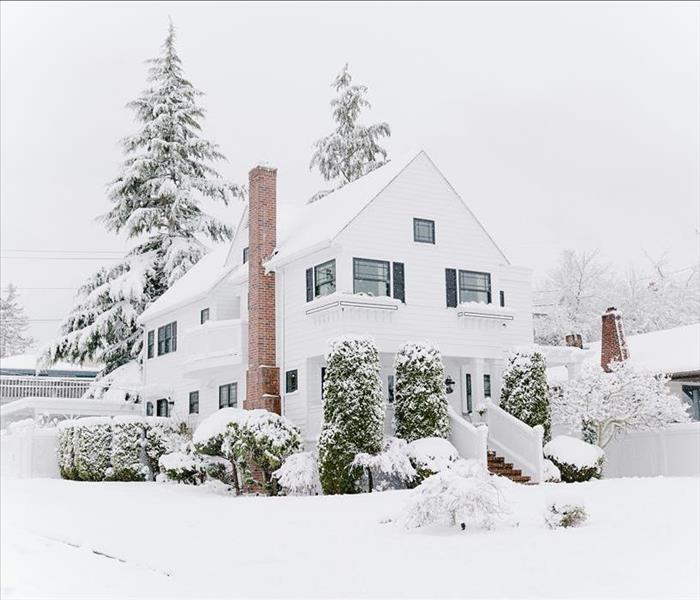Preparing Your Seattle Home for Cold Weather: Protecting Against Water Damage
11/7/2023 (Permalink)
 Seattle homeowners need to be prepared for the challenges that cold weather can bring, especially when it comes to water damage.
Seattle homeowners need to be prepared for the challenges that cold weather can bring, especially when it comes to water damage.
As winter approaches in the beautiful city of Seattle, homeowners need to be proactive in preparing their homes for the cold weather. While Seattle winters are relatively mild compared to some other parts of the country, they can still pose significant challenges to the integrity of your home, especially when it comes to water damage. In this blog, we'll discuss three essential steps that Seattle homeowners can take to get their homes ready for the cold weather, and how cold weather can lead to water damage.
Insulate Your Home
Seattle's chilly winters can cause heating bills to skyrocket if your home isn't adequately insulated. Inadequate insulation can lead to heat loss, which not only makes your home less comfortable but can also create conditions for water damage. Here's how:
a. Frozen Pipes: When the temperatures drop, poorly insulated pipes can freeze, and as the water inside expands, it can cause pipes to burst. This can lead to extensive water damage. To prevent this, make sure your pipes are properly insulated, and you can even leave your faucets dripping during particularly cold nights to keep water flowing.
b. Roof Leaks: Inadequate insulation in your attic can lead to heat escaping from your home, causing your roof to warm up. When snow on your roof melts, it can create ice dams along the eaves, which can force water under your shingles, leading to roof leaks. Proper insulation and ventilation in your attic can help prevent this issue.
Check and Maintain Your Gutters
Rain is no stranger to Seattle, even during the colder months. As temperatures drop, the rainwater can freeze, leading to ice accumulation in your gutters. When ice builds up in your gutters, it can block the flow of melted snow and rain, causing water to back up under your roof, leading to leaks and potential structural damage.
To prevent this, homeowners should:
a. Clean Gutters: Before the cold weather sets in, make sure your gutters are clean and free from debris that could obstruct the flow of water.
b. Install Gutter Guards: Gutter guards can help keep debris out of your gutters, reducing the need for frequent cleaning.
c. Check for Leaks: Inspect your gutters for any signs of leaks or damage. Repair or replace damaged sections to ensure proper drainage.
Protect Against Condensation
Condensation can be a hidden threat to your home during cold weather. When warm, humid air inside your home meets the cold surfaces of windows, doors, or walls, it can create condensation. Over time, this moisture can lead to mold growth, wood rot, and other forms of water damage. To protect your home against condensation:
a. Maintain Proper Ventilation: Use exhaust fans in kitchens and bathrooms to expel moisture, and make sure your home has proper ventilation to allow the moist air to escape.
b. Use Dehumidifiers: If your home is particularly humid, using a dehumidifier can help control moisture levels.
c. Seal Gaps and Cracks: Ensure that your home's envelope, including windows and doors, is properly sealed to prevent warm air from escaping.
Seattle homeowners need to be prepared for the challenges that cold weather can bring, especially when it comes to water damage. By insulating your home, maintaining your gutters, and protecting against condensation, you can ensure that your home remains cozy and dry throughout the winter months. Remember that preventing water damage is not just about avoiding costly repairs; it's also about safeguarding the comfort and safety of your loved ones during the chilly Seattle winters. So, don't wait – start preparing your home today!






 24/7 Emergency Service
24/7 Emergency Service